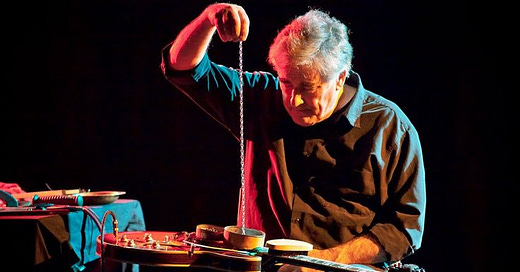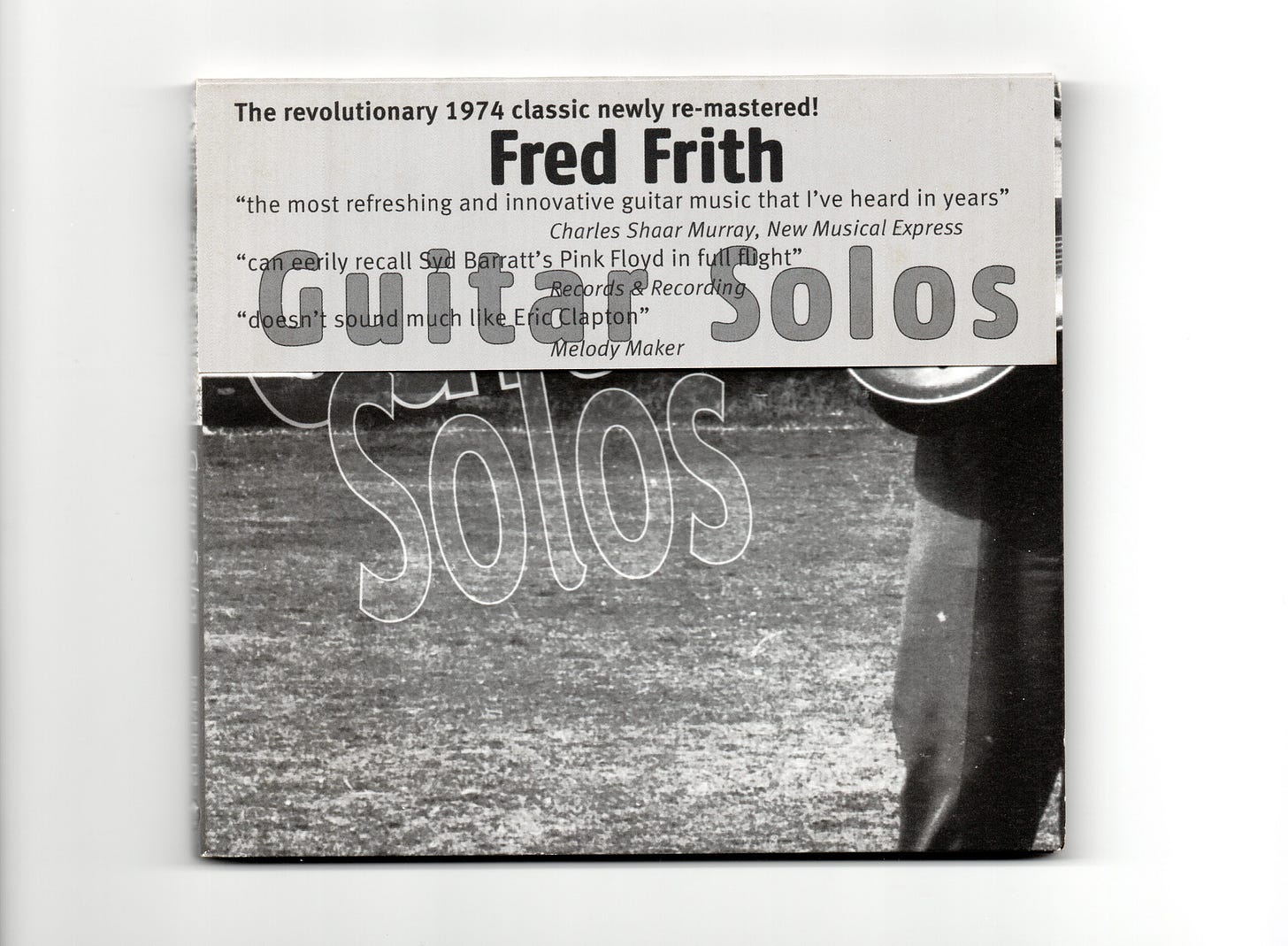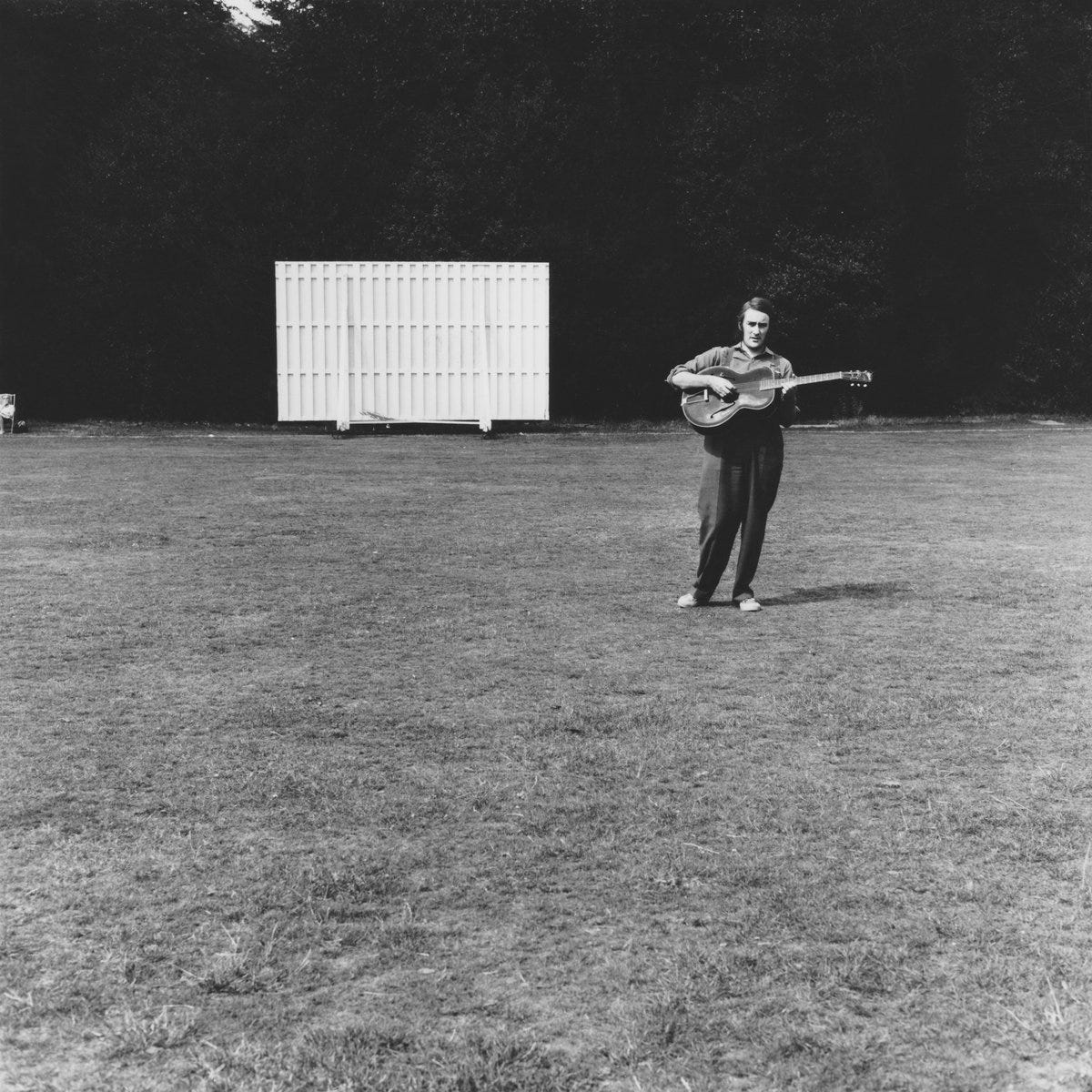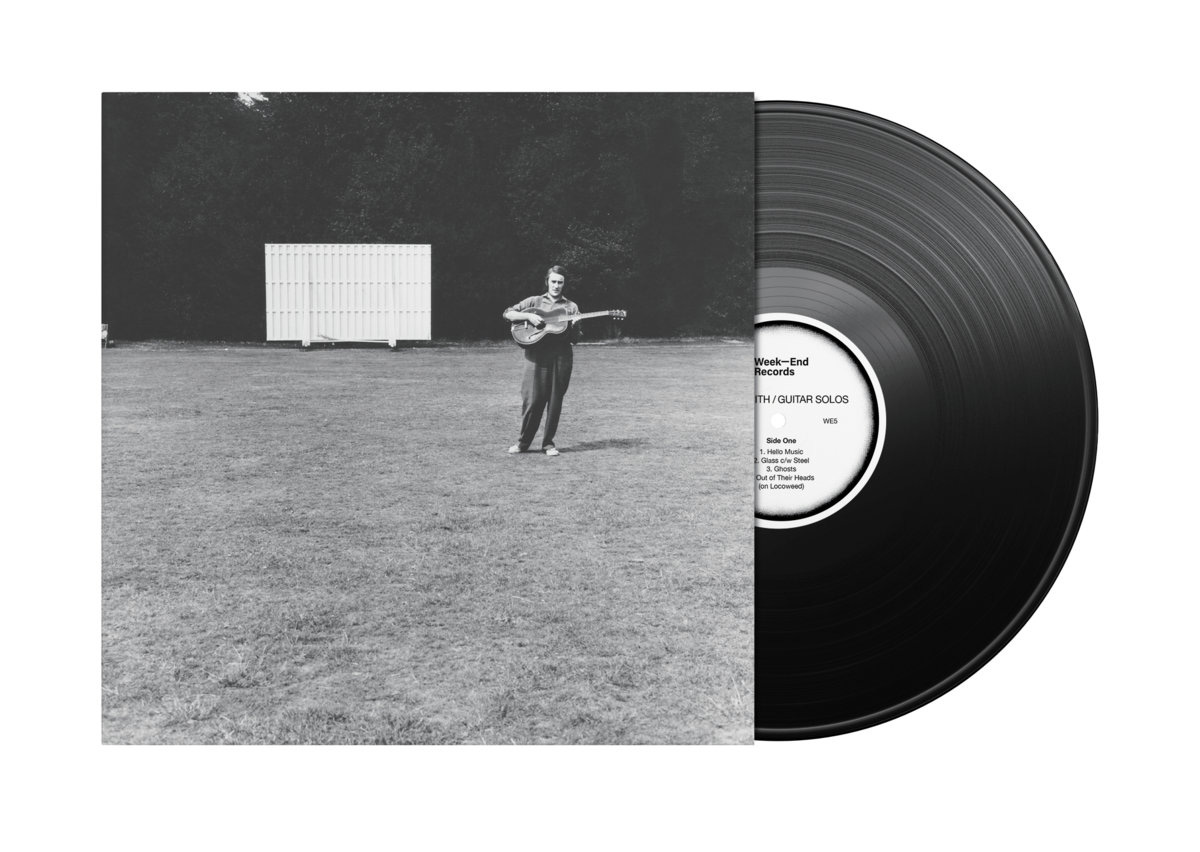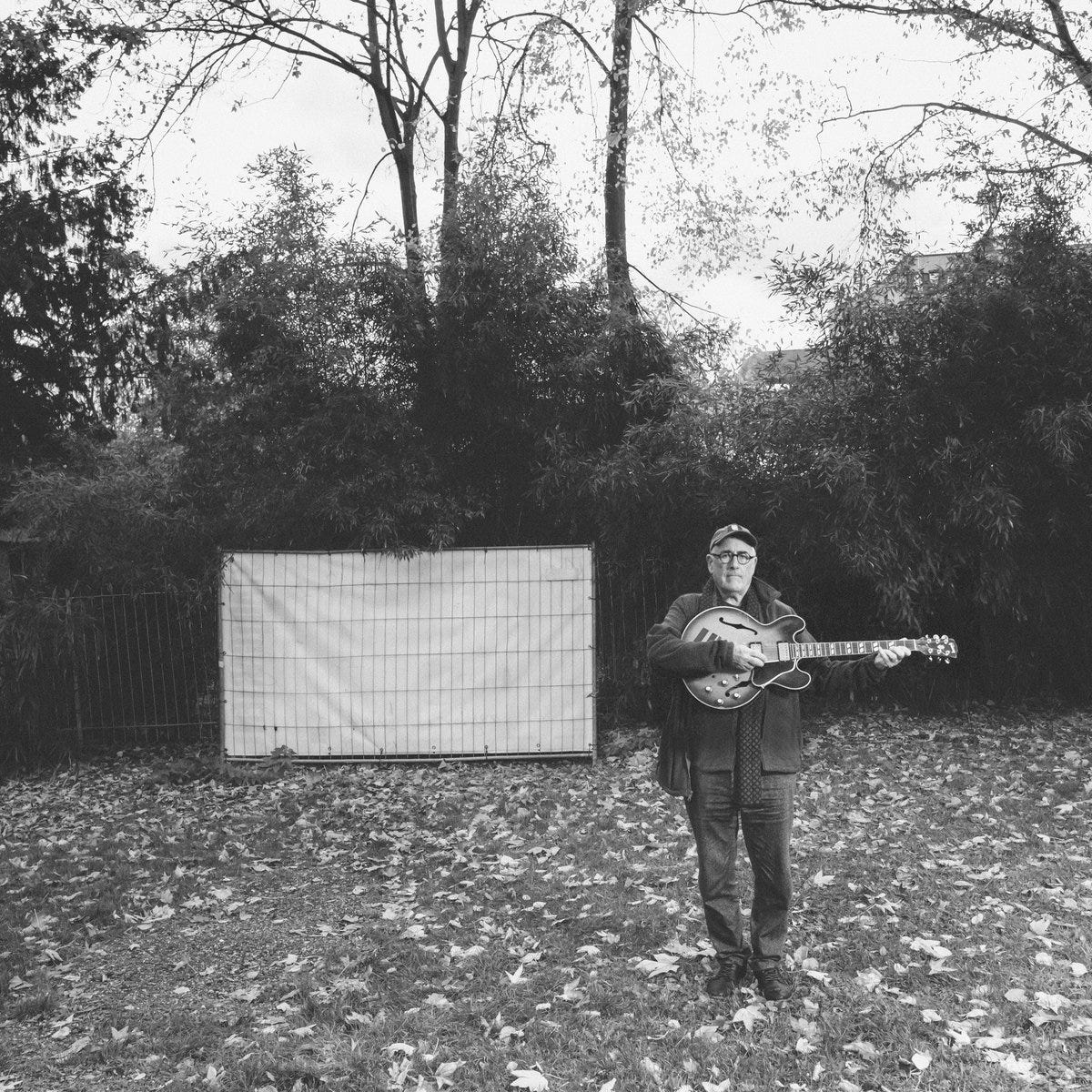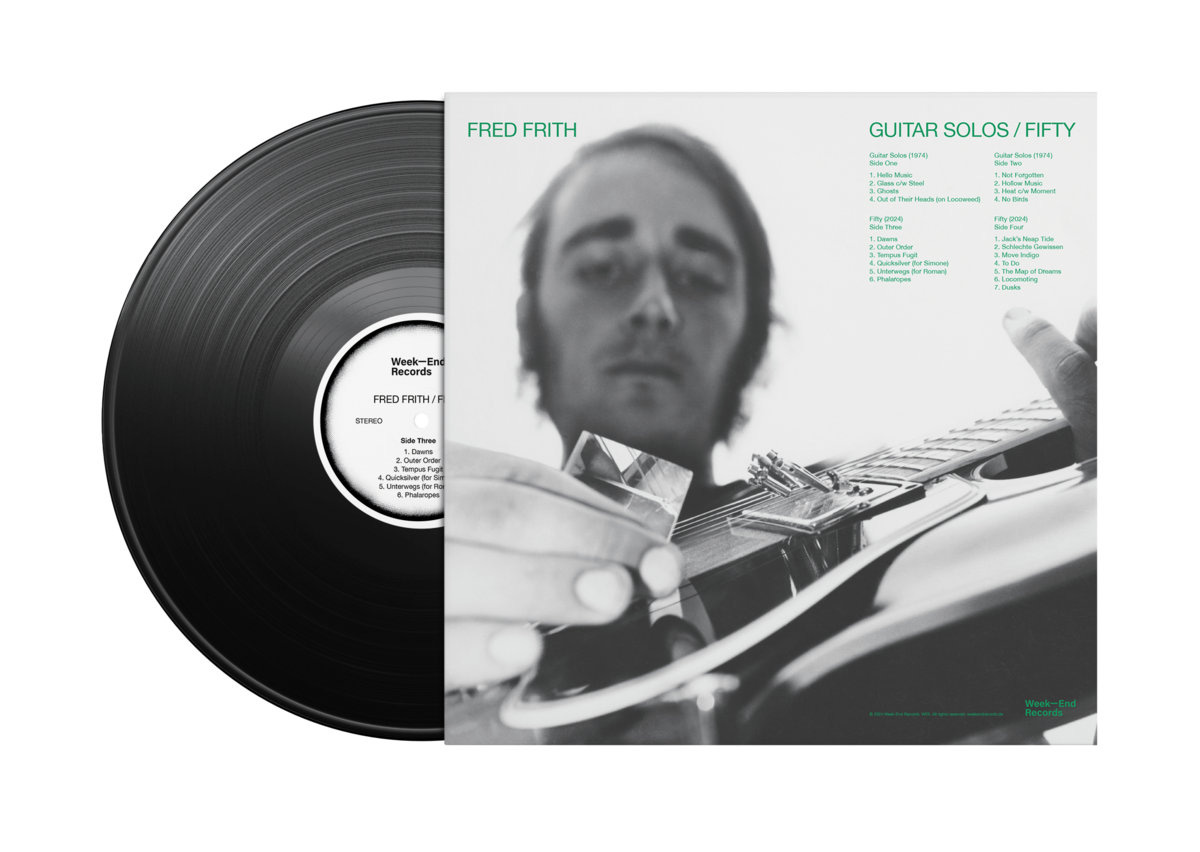“Improvised structures – the perception that they mostly consist of “boring” bits that lead to “exciting” bits; but if you attempt to cut out the boring bits by making very short “exciting” pieces, the result is the creation of stereotypes, self-conscious attempts to exite, predictable ways of manipulating the audience...easy to fall into traps, but better to resist simplistic definitions in the first place. Learning to empty yourself before playing.”
Fred Frith – Tapped Teeth – Arcana pag 311
Fred Frith. Henry Cow, Residents, Robert Wyatt, Naked City, Brian Eno, Ensemble Modern, Art Bears, Amy Denio, Violent Femmes, Heiner Goebbels, Skeleton Crew, Massacre, just to name a few points of reference. English guitarist, multi-instrumentalist, composer and improviser, one of the most long-lived and vital characters in a field of action that ranges from pure improvisation to rock, from composition to daring New York and Japanese creative forms.
Professor Fred Frith, a musician gifted with a unique guitar technique, can, at the interesting age of 74, be satisfied about his album "Guitar Solos", a work that contributed significantly to redefining the possible guitar's uses and abuses. What I am listening to, and which you see in the photos, is one of the reissues (Fred Records 2002) on CD of the vinyl originally released by Caroline Records in October 1974. The delicious news that Frith will release a celebratory double LP in 2024 forces me to to provide some history and clarity about this work.
Guitar Solos is Frith's debut solo album. It was recorded while Frith was still a member of the English experimental rock band Henry Cow and comprises eight tracks of unaccompanied, improvised music played on guitars prepared by Frith, without overdubs. At the time the album had received good reviews from music critics: for example in a review in NME in November 1974, Charles Shaar Murray described it as "a totally revolutionary album" and "an undeniable point of reference in the history of rock guitar ” [Murray, Charles Shaar (30 November 1974). “Review: Guitar Solos.” New Musical Express. ISSN 0028-6362. ]
“Music is an act of transformation—air moves, waves travel, membranes vibrate, bodies are altered. When I use objects to produce sounds from a guitar, I'm also transforming them. The paintbrush, the clothes the doweling rod, the alligator clip, the ball of string, the bag of rice, chains, the tin can, these may all be familiar objects. When I use them as mediators, though, they can no longer be defined by their intended function. Instead they become magical objects with mysterious powers, and although at first you may laugh at the idea of someone playing the guitar with a paintbrush, eventually you won't notice it any more. The brush has become, not invisible exactly, but altered beyond recognition.”
Fred Frith – On dirt, revelations, contradictions, and breathing through your elbows – Arcana V pag 131
Guitar Solos is still considered a point of reference due to its absolutely innovative and experimental approach. It was followed up with two more albums: Guitar Solos 2 (1976)
and Guitar Solos 3 (1979)
and also caught Brian Eno's attention, “He’d heard my record Guitar Solos and was excited by the timbral possibilities that I’d been discovering, so that was the focus more or less “, Frith was asked to record and play his guitar on two of Eno's albums, Before and After Science (1977) and Music for Films (1978). The table guitar setup used by Frith in Guitar Solos also became a standard for many of his subsequent live performances, including those recorded on his 1982 double live album Live in Japan. He later extended his technique to include "found objects", which he used on his guitars to extract new sounds.
The album was recorded at David Vorhaus' Kaleidophon Studios in London on 11-13 and 15 July 1974, with a Gibson 1936 K-11 modified with the addition of an extra pick up placed directly on the neck strings near the headstock, which allowed Frith to amplify both sides of the strings, dividing the neck in two with a moving nut, thus effectively obtaining two amplified guitars on which he could play at the same time. The addition of metal clips on the strings allowed the sounds to be further "personalized", which were then channeled from the guitar into a mixer and from there distributed through a multi-channel surround system. The album was recorded in four days without any overdubbing. All the pieces were born from improvisations, some completely, others on a roughly preconceived idea, and sound as they were played, except "No Birds", which was recorded in two parts, and "Not Forgotten", from which they Two notes have been removed. The only sounds not produced 'naturally' by the guitar are those of a fuzzbox used in "Out of Their Heads (On Locoweed)", "Heat c/w Moment" and "No Birds", an echo delay used in "No Birds" and the ambient noise of Frith's breathing and feet on "Heat c/w Moment." Frith took the title of "No Birds" from the last line of a poem, "One Nest Rolls After Another" by Captain Beefheart, printed on the back of the LP cover of his album “Mirror Man” (1971). Frith also used the phrase "No Birds" in the Frith/Cutler song, "Beautiful as the Moon – Terrible as an Army with Banners".
In 2024 we will see a new edition of “Guitar Solos”. If on its debut, "Guitar Solos" opened a space beyond rock and improvised music, now, 50 years later, comes "Fifty" (2024), a new solo guitar album that sounds completely different and yet familiar, which adds to his monolith of musical creation with another vibrant new color.
Jack's Neap Tide (2024) | Fred Frith (bandcamp.com)
Almost fifty years later, this music and the ideas it embodies have not yet exhausted their innovative energy and represent a wealth of experiences and possibilities that are indispensable for any guitarist. Frith then continued his career in a more than honorable way with collaborations ranging from Ensemble Modern to John Zorn, demonstrating his ability to cross any musical genre with ease and a British sense of humor. Long live the Professor!

